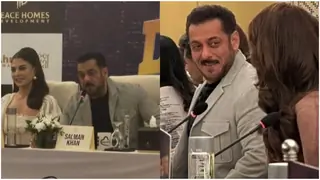The Clot Thickens
The adage "blood is thicker than water" expresses a universally shared, but dysfunctional sentiment. Regardless of religion, ethnicity, or culture, humans from ancient times have felt the need to buy into this adage that the blood-tie is the magic glue that not only binds families together, but also ensures that property remains within the familial circle over generations.
Subscribing to this adage has actually been the privilege of a pedigreed few --monarchs, aristocrats, and a few others with access to tremendous wealth and power. The more the wealth and power that one commands, the greater is the insecurity of losing it, thereby creating the need for drawing elaborate boundaries to protect their own interests by delineating the "outsiders" and keeping them externalized through a shared narrative of blood-ties. It is interesting to note that this narrative is fabrication of the elite in patriarchal societies, where women are always externalized --even in societies with progressive inheritance laws. As daughters, women are externalized, as they are seen to eventually "belong" to other families; as wives and mothers, the women are also externalized, though they contribute to maintaining the "purity" of blood lines. Women are still on the outskirts, and partake of the fruits of the wealth, power, and standing of the lineage only peripherally, through their connection to the husbands or the sons. We see this exemplified in the characters of Gayatri and Maya.
The bloodline myth operates on the pervasive illusion that "one's own" people are always connected to one through direct or indirect ties of blood. Such connections must always be prioritized, and familial hierarchies and dynamics --however abusive or dysfunctional-- maintained at any cost, because "one's own" people always have one's best interests at heart. One is always urged to give a wide latitude in such relationships, and turn a nelson's eye to all dysfunction, as the true "battle" is always between "us and them," rather than "among ourselves." The fear of the external society, waiting to pounce, like a hawks closing in over a dying animal, makes the subscribers of the bloodline myth both extremely wary of societal disapproval, and ever-cautious of covering their tracks, of pushing indiscretions, familial conflicts and dysfunctions under the proverbial rug. The irony is that one cannot conceal something from others without also hiding it from oneself, which is precisely what leads to denial of one's shadow, and sets the stage for the very downfall one worked so hard to avoid. In this regard, the efforts made by the creators of Punar Vivah are laudable, as they attempt to expose the truth behind social values of most powerful: a construct designed to keep the hierarchy of wealth and power intact. We see this in the treatment of Arati and the characterization of SP.
The protagonist, Arati, is an orphan with no known antecedents. This is in a way worse than, say, knowing that one has humble beginnings, because that which is unknown is shrouded in an air of danger and intrigue. Her adoptive parents, the Dubeys, are lower on the class ladder, and certainly considered to be "outsiders" by those with a bloodline to protect. By an interesting quirk of fate, Arati is married into the powerful Scindhia household, a family name, we are told, so powerful that it can magically unlock all doors --schools, hospitals, courts, and the police, to name a few stand in attention to serve the bearers of this name.
I had always wondered why in comparison to Arati, Paridhi's indiscretions and untruths were not as threatening to the Scindhias, and were easily explained away. They did not flinch too much even at the murder charge, and did everything they could to save her name. The answer lies in the whole "us and them" game mentioned earlier. Paridhi, due to her parents' social standing counts as belonging within the bloodline narrative, while, Arati, clearly does not. In the eyes of the Scindhias, Arati was an outsider right from the start. We could see this from the beginning. Omissions and commissions on Pari's part, during and after the wedding rituals, were always ascribed to forgetfulness and the inexperience of youth, whereas Arati's indiscretions were retaliated with the strictest of repercussions. This is primarily because she was seen as a threat to the established social order within the family and the noveau riche society. No wonder, then, the poor woman was thrown out of the house a record number of times, and repeatedly threatened with divorce papers.
The persona of SP, a self-made man by his own admission, is drawn as the architect and the keeper of the Scindhia line and reputation. So sure was he of the weight of his reputation that he could afford to marry his son to a helpless widow of unknown origin, and still look good in society, as though he was setting an example. Arati was seen as a token in the Scindhia household. Even in the earlier days, as now, SP saw Ansh as a pawn through which he could control his mother. When Gayatri was objecting to having Ansh in the house after the wedding, SP stated that it was expedient to have the boy come and live with them, because it would ensure that Arati would forever be indebted to them and do as she was told. Every move of the family members was carefully choreographed by the patriarch SP. He raised his sons to grow to be shadows of himself --props that added to his name. They were never allowed to be their own people, or dared to dream their own dreams, so busy they were feeding his ego, and contributing to the general family dysfunction. Even Boa and Gayatri, to a lesser extent, fell in place, embracing their roles as guardians of the precious bloodline and reputation.
Now, the plot thickens --rather, the clot thickens, with mythical bloodlines congealing over swaddled infants being exchanged for revenge, class hierarchies surreptitiously being overturned in the shadows of passion that, for once, overran the need to feed the ego. SP's carefully choreographed orchestra is going to be overtaken by heavy notes of dissonant cacophonies, barging in from the past, mingling bloodlines, pushing the boundaries of his hubris, and spinning his reputation into deep chaos. This itself is a big development and almost relegates the entire kidnapping saga to a side-event, with the downfall of SP looming large. Regardless of who is actually involved in the kidnapping, SP is eminently culpable due to his participation in, and perpetuation of, the dysfunctional dynamics within his family, where each member was groomed to be an offering to satiate his megalomania.
Perhaps, this is exactly the kind of breakdown in the systemic dysfunction that is needed to provide opportunities for various actors within this dysfunction to redeem themselves. Will Yash grow stronger to express his dissent and move away from the family dynamics? Will Pankaj and Pratik be able to come out from the shadow of their father? Will Gayatri reemerge from her cocoon and be a stronger character? Only time will tell.
Thanks to all those who took the time to read the post to the end.


































